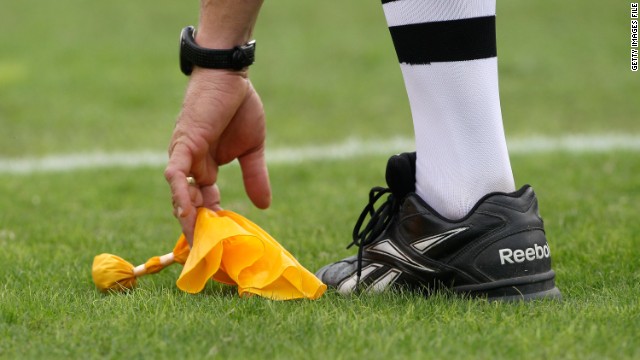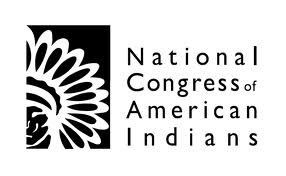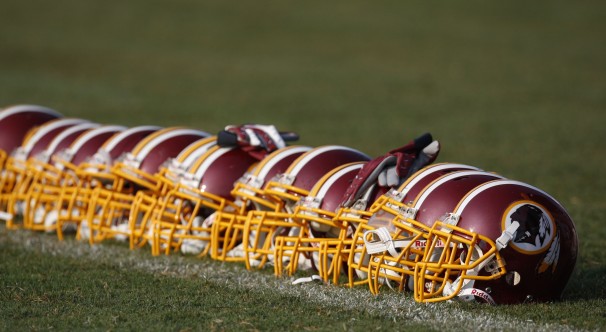
NFL considers penalty for ‘abusive’ talk
(CNN) — This week, the elite owners of the National Football League are considering instituting a 15-yard penalty for any NFL player caught using the N-word on the field.
Noble gesture? Sure. Clueless? Absolutely.
Why is it bad to demean a player of African descent, but the pejorative “Redskins” is still just fine for use as the name of the Washington football team? Makes no sense.
As a Native American, a citizen of the Oglala Lakota Nation and someone who participates in the Native American community and doesn’t just claim to be Native American because I have a picture somewhere of a great-grandma who had high cheekbones, I wonder: Hey NFL, why aren’t you just as pissed about the R-word?

I’m not black, and although I find the N-word repugnant and wrong, I’m not here to rage about it. I’m here, in fact, to make a point.
Throughout the last NFL season, Native Americans diligently and consistently worked to remind the conscientious objector (not the bigot — you can’t get much into the brain of a bigot) that Redskin is a racial slur. And we, the descendants of those who survived the Founding Fathers and westward expansion and Christian boarding schools, will not sit idly by as opulent white men tell us that the R-word isn’t an epithet and that it’s part of their tradition.
Don’t mistake me here, folks. Privilege in sports isn’t just white. I encounter African-Americans in Redskins garb and Latinos in Cleveland Indians jerseys.
In fact, this was the case last week on the D train here in New York City when, in a moment, I had enough of it all and encountered a tall black man with headphones on his ears and a Redskins lid on his skull.
He was standing, and I was standing. We faced each other, backs to the sliding doors, and I remember staring and glaring at his hat, then at his eyes, then up again to his cap. It wasn’t long, maybe just one stop, before he ripped his headphones off and asked me if I had a problem.
“With your hat,” I said. “So, yeah, I do.”
He paused for a quick second and seemed a bit perplexed by my response. He probably thought I was a mad fan of a different team — the kind of person who fights in stadium parking lots with beer in his gut and hate in his heart for any insolent denizen who dares don the logo of the visiting team.
“What a privilege,” I continued, “to be able to walk into a subway and not have to see someone wearing a hat with the stereotypical likeness of your people on it and a racist pejorative to accompany the image.”
And it gets better. I was on a Canadian radio show recently discussing the utter vulgarity of the R-word when a caller said to me, “You know, it’s so trivial. It’s just a word. …”
“But isn’t ‘colored’ just a word, too?” I barked. “Would you be so audacious as to make the same argument to an African-American about that word?” I waited for a loathsome rebuttal, but I all I got in return was dead Canadian air.
So, if you’re still curious “what makes the red man red?” (Thanks again, Disney’s “Peter Pan”), all you have to do is go to New York City and see the bevy of Christopher Columbus statues, and then go to Ohio and see the wiggy white men painted in red-face at the Cleveland Indians game and then end up back in Landover, Maryland, where the white and black and brown Washington Redskins taunt you, and then still ask: “What’s the big deal?”
Here’s the big deal. It’s wrong.
I recently asked my Native elder in the West about what he thinks of the term. He said, “I’m not red … I’m pissed.” And so am I — because if you’re not pissed, you’re not paying attention.
Follow us on Twitter @CNNOpinion.
Join us on Facebook.com/CNNOpinion.
The opinions expressed in this commentary are solely those of Simon Moya-Smith.
Editor’s note: Simon Moya-Smith is a citizen of the Oglala Lakota Nation and a writer living in New York City. He has a master’s from the Columbia University School of Journalism. You can follow him on Twitter @Simonmoyasmith.



